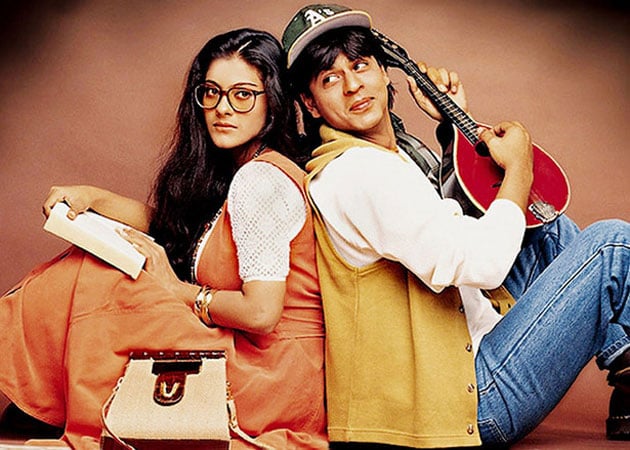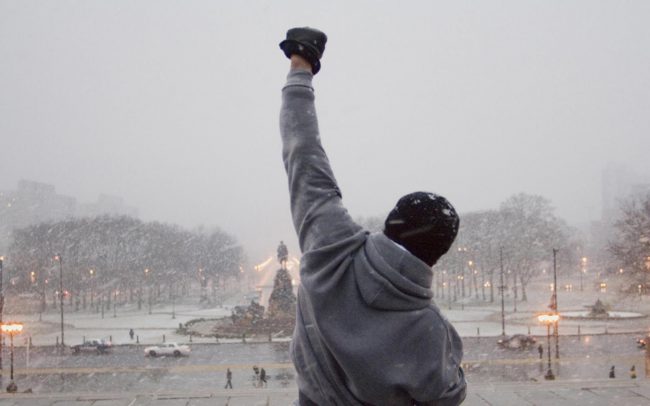
Here's the film critics everywhere have been putting off to the very last minute. (If there's room on the poster, the distributors are welcome to that quote.) Even the positive reviews of The Painted Bird coming out of last year's Venice film festival couldn't do much to sell it: this is a 169-minute adaptation of the Jerzy Kosinski novel set during the Nazi occupation of Eastern Europe, shot in Forbidding Art Film black-and-white, and depicting all the cruelties in the world being visited upon one young, quickly homeless Jewish boy (Petr Kotlar), from the torching of his pet ferret in the opening moments to being pawed by Julian Sands and even worse besides. The best those early festival flagwavers could do was position Václav Marhoul's film as a worthy successor to Elem Klimov's Come and See, the extraordinary, once-seen-never-forgotten Russian film of 1985 that also happens to count among the single toughest sits in the whole canon of cinema. (That Marhoul is courting such comparisons is apparent from his casting of Klimov's young lead Alexei Kravchenko in a late supporting role.) Still, for those who fled the film's festival screenings sobbing, or booing, or simply wobbling on their feet from the combined weight of the atrocities Marhoul depicts, I suspect that positioning will seem like mere sophistry. And that was before the pandemic. Having seen its initial UK release plans shelved as cinemas shuttered back in March, The Painted Bird can currently be seen making a dash for it as a second lockdown looms. I suppose the advantage of catching it now is that you can go home afterwards and seek light relief in the form of that ITV miniseries about the Dennis Nilsen murders. (I mean, seriously, pandemic schedulers: c'mon.)
That's the public-service aspect of the review done with: have no doubt you come this way for a hard time, not a good time. The question that follows is this: is it worth subjecting yourself to The Painted Bird? Is there any art to it that might send you out into the night with something beyond PTSD? There is, but it's some way down in the mix, and - as this viewer discovered - you may not entirely like what you have to slog through to get to it. The movie's strength is Kosinski's original narrative line, preserved in this adaptation as something like a guide rope, pulling us forward through the darkness, and from episode to episode. The film The Painted Bird reminded me of early on wasn't specifically Come and See, but the batty primitivism of Alexei German's similarly monochrome Hard To Be A God. Marhoul builds a world that strikes us as superstitious, cruel and brutally arbitrary even before the Nazis pull in, and then takes a great, almost cackling delight in leading us by the hand into those corners where the most conspicuous murk and rot reside. Ominous and offputting as that may sound, there is something advantageous in Marhoul's insistent movement. He never gets bogged down in the mud and shit as German seemed to in his sprawling theme park of human backwardness: there's always some new, dreadful direction for the film to go in, some unseen but likely appalling avenue to be explored. The problem lies in how this world was constructed to begin with: not with a fine pencil or brushstrokes, but wild swings of the chainsaw and mallet. Marhoul has one rough-hewn tactic - to contrast a child's innocence with the dyed-in-the-wool corruption of almost everyone else around him - and spends just shy of three hours hammering it into the ground. If any fingers or other extremities get in the way, all the better.For what becomes increasingly clear, as the film's horizon of agony extends before us, is just how committed Marhoul is to the depiction of pain. Even the gentler stretches of this boy's life - such as when he's sold to an old crone who tours the countryside treating poxes with grass snakes and fire - serve to expose the protagonist and us to an everyday level of human suffering; in the scenes of outright brutality, Marhoul licks his lips, rolls up his sleeves, and promptly outdoes himself. It's not enough that a jealous miller (Udo Kier, rarely a good sign) should feel compelled to pop out a love rival's eyeballs with a spoon; Marhoul cuts away to the cats on the floor of the miller's hovel threatening to chow down on the severed orbs, then follows up with a scene in which the boy encounters the eyeless victim in a forest and hands him back the useless organs, which somehow seems the cruellest gesture of all. This being a pan-European coproduction with overseas actors (aside from Kier and Sands, Harvey Keitel, Stellan Skarsgård and Barry Pepper pop up at intervals), dialogue and sound effects have had to be overdubbed, and Marhoul has devoted the bulk of his energies in this field to ensuring that the sounds of violence (crows' beaks pecking at a child's skull, a husband taking a shoe to his wife, the stomach-sinking clunk of a bottle being toepoked with force into a vagina) register loudest of all. It's a movie determined to make its audience flinch and squirm, which - as those shellshocked dispatches from Venice first demonstrated - The Painted Bird does, frequently. But to what end?
Marhoul appears to be operating on the assumption that his audience is fundamentally senseless, reaching for a cattle prod where a suggestive whisper or passing glance might make the same point - and might even make it linger. As it is, his tactics are blunted by repetition - it's all too quickly apparent this is a world where life canters one way: downhill - and there are points where I found the crude excess becoming unintentionally funny. If those eyeball-eyeballing kittens don't yield a chuckle, our boy's encounters with the horny widow who wields a corncob like a sex toy just might. Worse, there are points in The Painted Bird where Marhoul looks to be toying with the viewer as his Nazis do their captives (never a great look for an unknown director trying to win friends and influence people), allowing the tiniest glimmer of hope to pass across a scene, a set-up, a human face, before stepping back and comprehensively nuking the site from space. By the time the Cossacks ride on for some bonus last-reel raping and pillaging, spectacle has become unmoored from anything like historical reality: here is the kind of WW2 film that could only be made in a post-Tarantino world, by a director who stands exposed in the middle of his battlefield as someone who just really, really likes filming atrocities. So, where's the art? Much of it is concentrated around Kotlar, who does grow before our eyes, as any seven-stone weakling subjected to twelve weeks of on-set bootcamp would; cinematographer Vladimir Smutny, meanwhile, offsets the film's copious crimes against nature with some stark, striking studies of an apparently cursed landscape. It's the bleakest sort of beauty, though - somewhere between Bergman's colder shores and the mutely witnessing concentration camp sites of Shoah - and I could well understand if, at the end of a horribly long three hours, you could take no consolation from it whatsoever.
The Painted Bird is now playing in selected cinemas, and streaming via Prime Video, Curzon Home Cinema and the BFI Player.

















